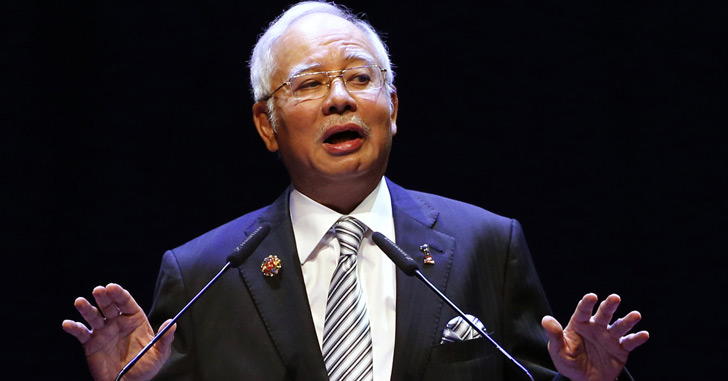With the Malaysian economy struggling, a prime minister facing corruption allegations and widespread criticism of government policy, we asked leading Malaysian academic James Chin what 2016 holds for the country
Although institutions such as the World Bank and Moodys are generally positive about Malaysia’s economic prospects, problems such as the lack of job vacancies, low oil prices and the continued depreciation of the ringgit loom large. Added to the economic problems, people are dissatisfied over a general sales tax introduced last year and concerned about ongoing investigations of nearly $700m found in a bank account of Prime Minister Najib Razak – explained away as a donation from a Saudi prince. Furthermore, divisions between the three major ethnic groups – Malay, Chinese and Indian – are widening, and hardline Islamism is on the rise. All of this conspires to bode ill for Malaysia in 2016, as James Chin, director of the Asia Institute at the University of Tasmania, Australia, tells us.

According to Malaysian Insider and The Nation, Malaysia’s economy is going to remain stable at best in 2016. How do you think the lack of growth in the economy will influence the way Malaysians view their government?
The biggest problem is government development spending. The coffers are bare because money from [state-owned oil company] Petronas is no longer there. With low oil prices expected for the next 12 months, the shortfall will only be partly met by the GST [Goods and Services Tax]. GST is causing a lot of unhappiness among the lower earners who normally do not pay much tax.
How has attorney-general’s verdict on the $681m “gift” to Prime Minister Najib Razak gone down in Malaysia? What will be the impact of this decision in 2016?
Everybody thinks this decision was done to protect Najib; nobody believes the donation story. The problem is Najib cannot stop investigations going on overseas and one of these investigations may implicate him directly.
What are your predictions in regards to Malaysian politics in 2016?
More problems for Najib, but he will remain strong as long as he can stabilise the ringgit. The moment the ringgit hits [an exchange rate of] MYR5 to $1, I think we will have political problems.
Simply put, if it hits this rate, all imports will be twice as expensive as three years ago. These costs will have to be passed on to the consumer. The cost of living will therefore be key to Najib surviving. If he can stabilise the ringgit – business can work with [an exchange rate of] MYR4.4 to $1 – what [business] cannot stand is a fast-moving currency because they cannot price items.
What lengths do you think the government will go to in order to stay in power?
Ha ha. They will do anything and I mean anything. I will not be surprised if they start another 13 May incident [an episode of Sino-Malay violence in 1969], if that is the last chip to play.
What do you think needs to change in Malaysia?
The regime needs to change. The biggest problem now is corruption and confidence. Confidence will only come back with regime change.
What do you think about the ethno-religious divide in Malaysia? Will it widen this year? Will ethno-religious issues be used more frequently for political gain?
Yes and yes. Every time there is an economic crisis in Malaysia, the Chinese get the blame. It’s part of the playbook.
Keep reading:
“Malaysian PM’s battles have only just begun” – While Malaysian Prime Minister Najib Razak might have been cleared of wrongdoing in a financial scandal, more accusations are likely to come, says academic Greg Lopez

